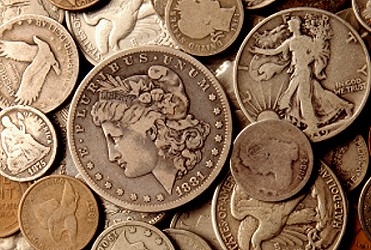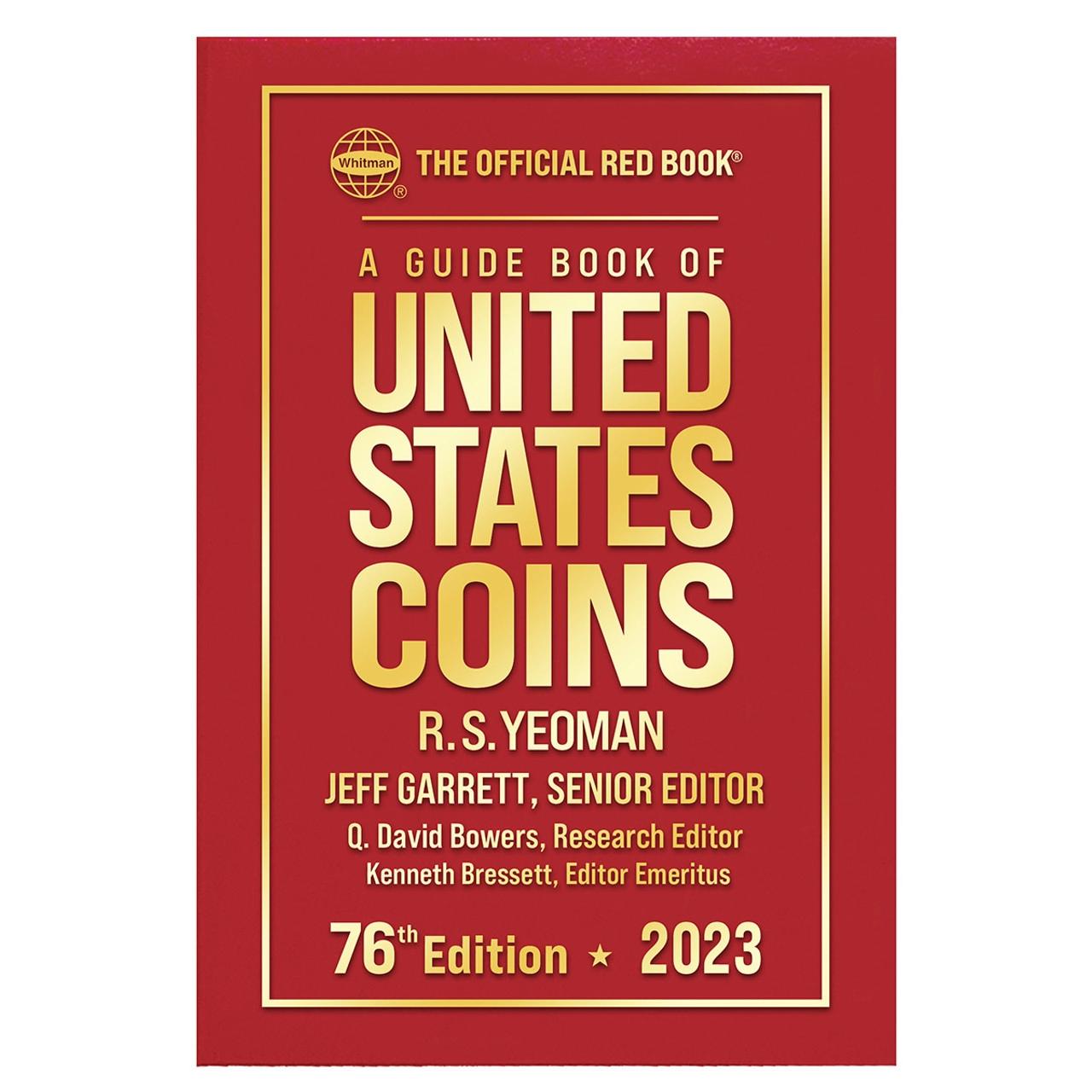How To Sell Coins (Don't Trust AI, Read This Instead)
You don't need to rely on answers from artificial intelligence in order to sell your coins. These AI tools may even provide faulty information on this niche topic. With the right basic knowledge, anyone can successfully sell a coin collection.
As a reputable coin and bullion dealer with decades of experience, Gainesville Coins has all the expertise you need when it comes to selling coins.
How to Sell Your Coins
Here are some simple steps to get started selling coins:
Selling Coins In-Person vs. Online
In today’s world of e-commerce platforms and digital sales, you no longer have to go to a brick-and-mortar store to buy what you want. The same goes for selling, too.
Yes, you definitely can still buy and sell coins at a traditional storefront coin dealer. There are some benefits to doing this that we’ll address in a moment. But if you cannot go to a coin dealer to sell your coins or don’t want to, there are viable options for selling coins online.
Benefits When You Sell Coins In-Person
Selling coins in-person affords a few definitive benefits. These include getting to talk with a coin dealer face-to-face about what you want to sell, answering each other’s questions about your material in real-time. You can also walk away with a check at the moment of sale—no waiting for one to arrive in the mail.

Selling coins in person can be helpful when you have a wide variety of different coins.
Benefits When You Sell Coins Online
So, what about selling coins online? Of course, this process becomes a little more drawn out but has benefits all its own. You can list coins on an auction website or sell them to a coin dealer.
Some dealers advertise exactly what they are buying on their websites and even offer virtual quote cards suggesting what they’ll pay for certain coins. Other coin dealers request you send them the coins you wish to sell for an offer and/or payment upon receipt.
Online and virtual coin sales frequently require more time to get an offer. There are also more trips to the post office to get your coins where they need to be sold. Online stores or online marketplaces like eBay may not pay the highest possible price, either.
However, selling coins online and sending them through the mail is a convenient alternative for those in small towns or far-flung locales where there aren’t major coin dealers near them to sell to. This is also an excellent option for selling coins to a dealer who needs the material you want to sell, thus increasing your odds of getting a more substantial offer.
5 Insider Tips for Selling Coins
Understanding the selling process is how to get the most money for your coins. Whether you decide to sell your coins in-person or online, there are several helpful hints to make your transaction go more smoothly while also getting the most money for your coins. These include the following five suggestions for the best way to sell coins:
- DO NOT clean your coins
- Identify your coins
- Look up coin values
- Check metal prices
- Minimize your risks
We will explain each of these tips below.
1. Don’t clean your coins
Many people seem to think they should clean their coins to make them “look pretty” before selling them. The motive is to try to make more money on the sale. Yet this actually makes the coins worth less.
It’s incalculable how much numismatic value goes down the drain each year with people cleaning their coins before selling them. Don’t clean your coins! Not only does this cut their value by as much as half (or even more), but it will be an immediate deal-breaker for many dealers who would’ve otherwise wanted to buy your coins if only they were left in their original condition.
2. Identify what kinds of coins you have
Some people who sell their coins do so because they inherited them and otherwise have no interest in the coins themselves. This lack of knowledge can be a significant disadvantage to the seller. You might know when you are getting a good offer (or not) by simply understanding what it is you’re selling. This is true for Buffalo nickels, Washington quarters, American Silver Eagles, or any other coin type.
Do you have slabbed coins (i.e. graded coins)? Do you have a large collection of mint sets or proof sets? Do they have mint marks? What is each coin's condition? There are many great resources to help you gain more knowledge about your coins, including the informative coin articles on this website and publications such as A Guide Book of United States Coins, a popular annual release by Whitman Publishing.

The Whitman coin guide is also known as "The Official Red Book" among avid collectors.
3. Find out the approximate value of your coins
You’ll want to know approximately how much your coins are worth before selling them. This may seem counterintuitive: doesn't the buyer know their value? The reality is that you will avoid a bad deal if you are armed with this knowledge beforehand.
After identifying your coins in Step 2, you should consult multiple resources to get an idea of their value. In addition to the Whitman guides mentioned above, you can also check online sources such as NGC, PCGS, and USA Coin Book.
But before you sell your coins, remember that most coin price guides out there are giving you a retail value. The retail value or retail price is how much the coins are worth if you’re buying them from a dealer.
The amount you’ll earn for selling those same coins could be anywhere from 20% to 50% less than the prices listed in those guides, depending on the given coin and its condition. Why? This is because dealers buy at wholesale prices, which allows them to pay for business operating costs such as overhead and wages.
Don’t expect to receive the prices listed in any retail coin price guides from potential buyers. Also keep in mind that coins or paper money in poor condition may only be worth their face value. Understanding coin grading can be very useful in this regard.
4. Familiarize yourself with current bullion prices
If you’re selling gold coins or silver coins, you’re most likely going to receive an offer pegged at or around the spot metal value of your material. The spot price is an amount of money equivalent to the intrinsic value of the bullion metal in your coins. In other words, the melt value of their gold or silver content.
For example, if your coin contains a one-half ounce of gold in metal content, its spot value is 50% of the value for an ounce of gold, the unit of measure most often cited for gold (and silver) prices. This is where it behooves you to find out the current metals prices. You’ll know roughly what to expect for an offer when you go to sell coins with precious metals in them.
5. Minimize risks to you and your coins when selling them
There are a few precautions you should take to keep you and your coins safe before and after selling them. Make sure you aren’t being followed around by someone else while coins are in your possession. Many dealers and collectors are robbed this way after being tailed by a thief on the road.
For similar safety reasons, keep your transactions discreet. There’s no need to flaunt what you’ve got and are soon selling. And if shipping your coins in the mail for an online transaction, keep words like “coin,” “bullion,” “gold,” “silver,” etc., off the outer packaging. Envelopes and boxes decorated with words like these invite thieves to open and steal its contents.
The Best Place to Sell Coins: Selling Coins for Top Dollar at Gainesville Coins
With the market the way it’s been lately, there’s never been a better time to sell coins. Whether you decide to liquidate them online or in person, the best place you’ll have is to sell them to Gainesville Coins. Unlike auction websites, there is no seller's fee.
We’ve been in business since 2006 and are one of the most respected and trusted coin dealers around. Come visit our brick-and-mortar storefront in Lutz, Florida, just a few miles north of Tampa, and our international offices worldwide. You can easily find us on social media. We also buy coins online, making it the easiest way for you to sell us your coins no matter where you are.
If you're ready to sell your coins to the right place, follow the link!
It's always a good sign when a coin dealer is a member of prestigious industry organizations. Examples include the American Numismatic Association (ANA), the Professional Numismatists Guild (PNG), and third-party grading services such as Professional Coin Grading Service (PCGS) and Numismatic Guaranty Corporation (NGC). where an A+ rating is given for promptly responding to customer concerns.
For more information about selling your coins to Gainesville Coins, please email us or give us a call at (813) 482-9300. One of our expert coin professionals will be glad to further educate you on how to sell your coins to us and a fair price of how much they might be worth.
Joshua McMorrow-Hernandez is a journalist, editor, and blogger who has won multiple awards from the Numismatic Literary Guild. He has also authored numerous books, including works profiling the history of the United States Mint and United States coinage.
More information about buying and selling coins from the numismatic experts at Gainesville Coins:
How To Sell Your Silver Coins for Profit
Coin Collecting for Kids: A Beginner's Guide
Get Started Collecting Coins: A How To Guide for the Beginner
Top 13 Error Coins Worth Money - Price Guide
U.S. Mint Coins For Sale: Buyer's Guide
Junk Silver FAQs: Frequently Asked Questions About 90% Silver Coins
